In the vast digital landscape, where websites jostle for attention and visibility, the concept of Domain Authority (DA) emerges as a pivotal player in the realm of Search Engine Optimization (SEO). For online businesses and content creators alike, grasping the nuances of DA can be a game-changer, influencing their standing on search engine result pages (SERPs) and overall online credibility.
In this comprehensive guide, we will delve into the intricacies of Domain Authority, exploring its definition, calculation methods, and most importantly, the actionable steps you can take to enhance it. Whether you are a seasoned webmaster or a novice blogger, understanding and optimizing your website’s DA is the key to unlocking a higher ranking on search engines.
Join me on this journey as we demystify the world of Domain Authority, empowering you to not only assess your current standing but also to implement strategies that can propel your website to new heights in the competitive digital landscape. Let’s embark on a quest to decode the significance of Domain Authority and learn how to wield it to your advantage.
What is Domain Authority?
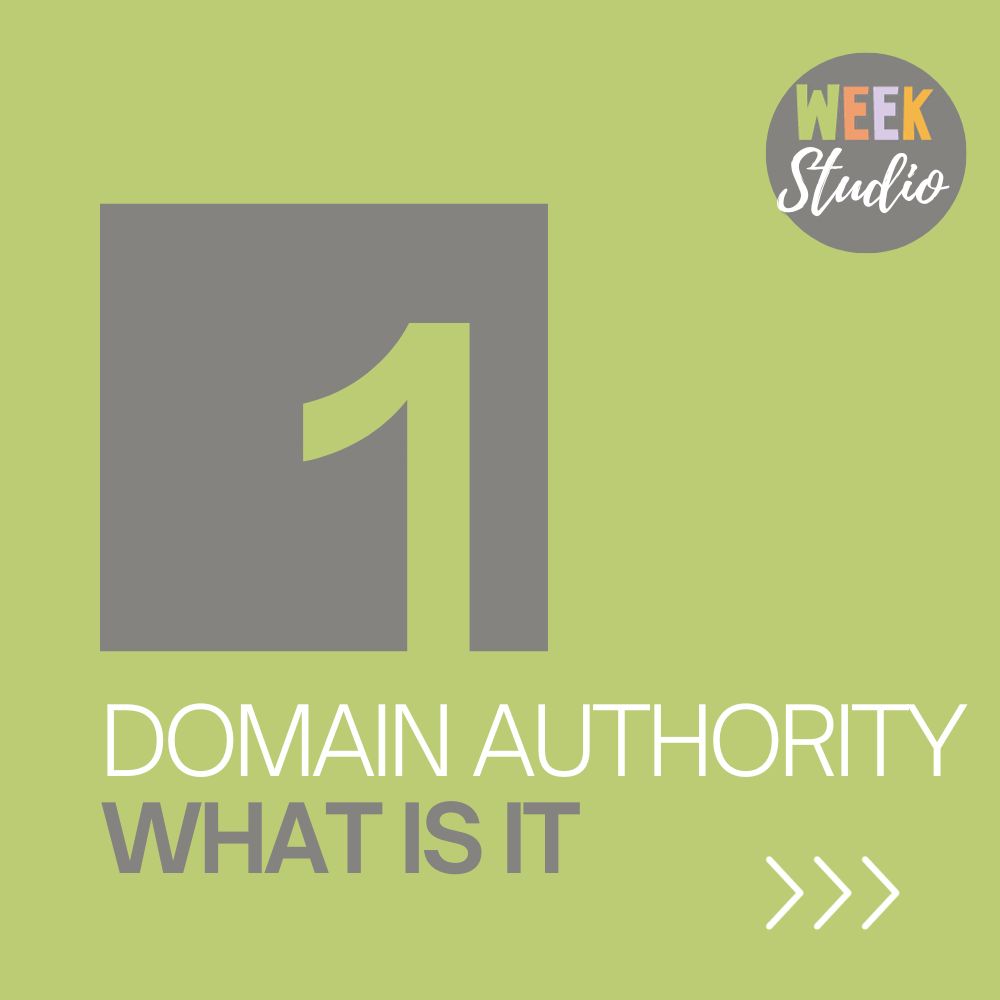
At its core, Domain Authority (DA) is a metric developed by Moz that quantifies the strength and trustworthiness of a website on a scale from 1 to 100. This numerical representation reflects how likely a site is to rank on search engine result pages (SERPs), with higher scores indicating a greater potential for visibility. While DA is not a direct factor in Google’s search algorithm, it provides a valuable insight into a website’s overall SEO performance.
Definition and Explanation
Domain Authority is essentially a composite score, amalgamating various factors such as the quality and quantity of inbound links, the relevance of content, and the overall online presence. It serves as a comparative metric, allowing you to gauge your website’s standing in relation to others within your niche or industry.
Understanding the factors that influence DA is crucial. It’s not merely about the number of links pointing to your site but also about the quality of those links. A link from a reputable and authoritative site carries more weight than several links from less established sources.
Significance in SEO
In the ever-evolving landscape of SEO, Domain Authority holds immense significance. Websites with higher DA scores are perceived as more trustworthy and credible by search engines, which can positively impact their rankings. It’s important to note that DA is a relative metric, meaning your score is meaningful when compared to competitors rather than in isolation.
Webmasters and SEO professionals use DA as a benchmark to assess the effectiveness of their strategies. A continuous effort to improve DA often correlates with enhanced search visibility and, consequently, increased organic traffic. As we navigate through the intricacies of DA,
How is Domain Authority Calculated?
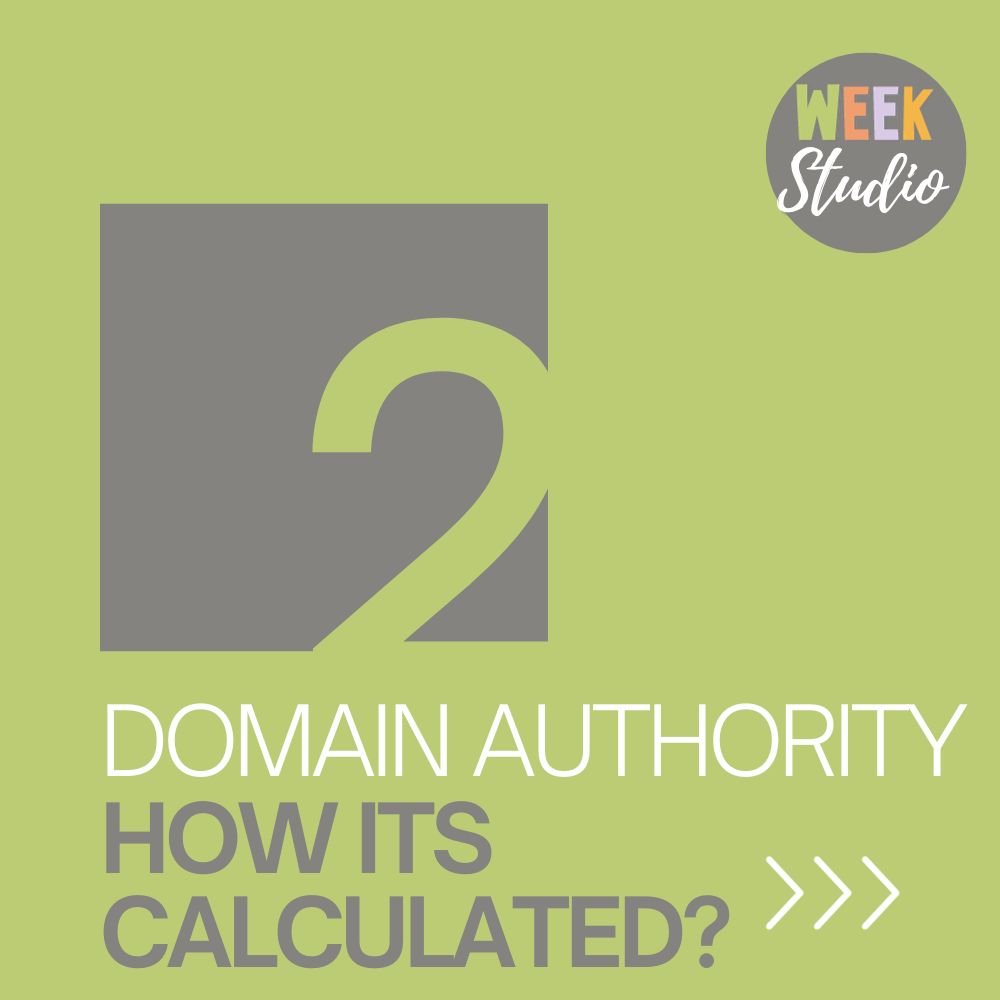
The calculation of Domain Authority involves a complex algorithm developed by Moz. While the exact details of this algorithm remain proprietary, Moz has provided insights into the key components that influence a website’s DA score.
Moz’s Algorithm: Moz’s algorithm considers a multitude of factors to evaluate a website’s authority. The primary focus is on linkrelated metrics, emphasizing the quality and quantity of backlinks. However, Moz continually refines its algorithm to provide a more accurate representation of a site’s authority.
One crucial point to understand is that the algorithm operates on a logarithmic scale. This means that moving from a DA score of 20 to 30 is more achievable than progressing from 70 to 80. As a result, incremental changes in your website’s performance can have varying impacts on your DA score.
Factors Influencing DA
- Total Backlinks: The overall number of backlinks, including multiple links from the same domain.
- Quality of Backlinks: The authority of the sites linking to you plays a significant role.
- OnPage Factors: The relevance and optimization of onpage content.
- Social Signals: While not a direct factor, social signals can indirectly impact DA.
Understanding these factors is the first step in proactively managing and improving your website’s Domain Authority.
Why is Domain Authority Important?

Domain Authority (DA) is a critical metric in the realm of Search Engine Optimization (SEO) for several compelling reasons. Understanding its significance can illuminate the path toward improving your website’s overall performance and visibility in the digital landscape.
Impact on Search Engine Rankings One of the primary reasons why Domain Authority is deemed crucial is its direct correlation with search engine rankings. Search engines, including Google, consider DA as an indicator of a website’s trustworthiness and authority. Websites with higher DA scores are more likely to secure prominent positions on search engine result pages (SERPs).
Trustworthiness and Credibility In the eyes of both search engines and users, a high Domain Authority signifies trustworthiness and credibility. When your website is seen as an authoritative source within your niche or industry, visitors are more likely to engage with your content and trust the information you provide. This trust factor is invaluable in establishing a positive online reputation.
Competitive Advantage

In the fiercely competitive online landscape, having a superior Domain Authority provides a competitive edge. When potential customers or readers search for information or products within your domain, a higher DA increases the likelihood that your website will be among the first they encounter. This advantage can result in more organic traffic and, consequently, greater opportunities for conversion.
Recognition by Search Engine Algorithms While Domain Authority is not a direct factor in Google’s algorithm, it is widely acknowledged that Google and other search engines utilize similar metrics to assess a website’s authority. Therefore, the efforts you invest in improving your DA can indirectly contribute to a more favorable perception by search engine algorithms.
As we move forward, we will explore practical steps for checking your website’s Domain Authority and understanding its implications for your online presence. Stay tuned for actionable insights that can shape your approach to SEO strategy and website optimization.
Checking Your Website’s Domain Authority
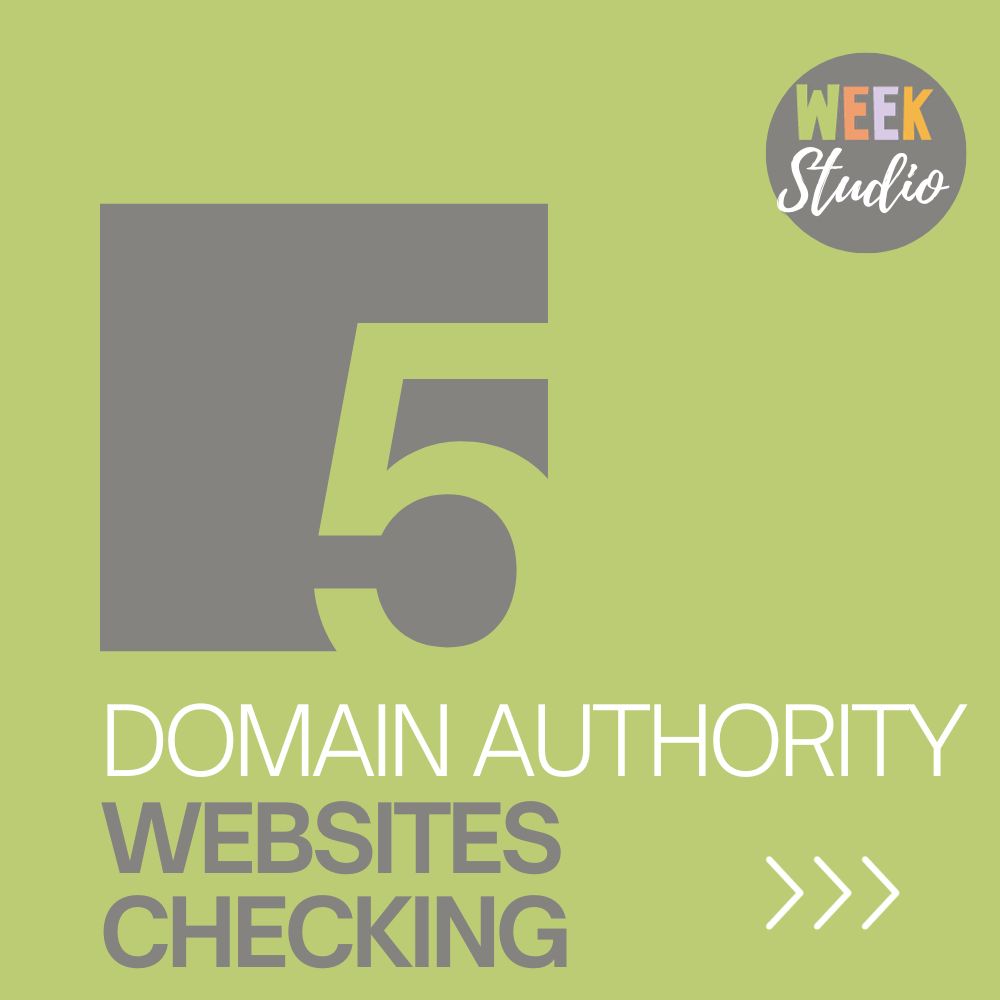
Now that we understand the significance of Domain Authority (DA), the next logical step is to evaluate your website’s current standing. Fortunately, there are user-friendly tools available that simplify this process, providing you with valuable insights into your website’s performance.
Using Online Tools
- Moz’s Open Site Explorer: Moz offers a dedicated tool called Open Site Explorer that allows you to check your website’s Domain Authority. Simply enter your URL into the search bar, and you’ll receive a comprehensive report detailing your DA score, linking root domains, and more. This tool also enables you to compare your DA with that of your competitors.
- Ahrefs: Ahrefs is another reputable tool that provides a holistic view of your website’s backlink profile and Domain Authority. By entering your URL, you can access detailed data on the number of backlinks, referring domains, and your overall website authority.
- SEMrush: SEMrush is a versatile SEO tool that not only checks your Domain Authority but also provides insights into your website’s overall SEO health. It offers a user-friendly interface, making it accessible to both beginners and seasoned SEO professionals.
Understanding the Score
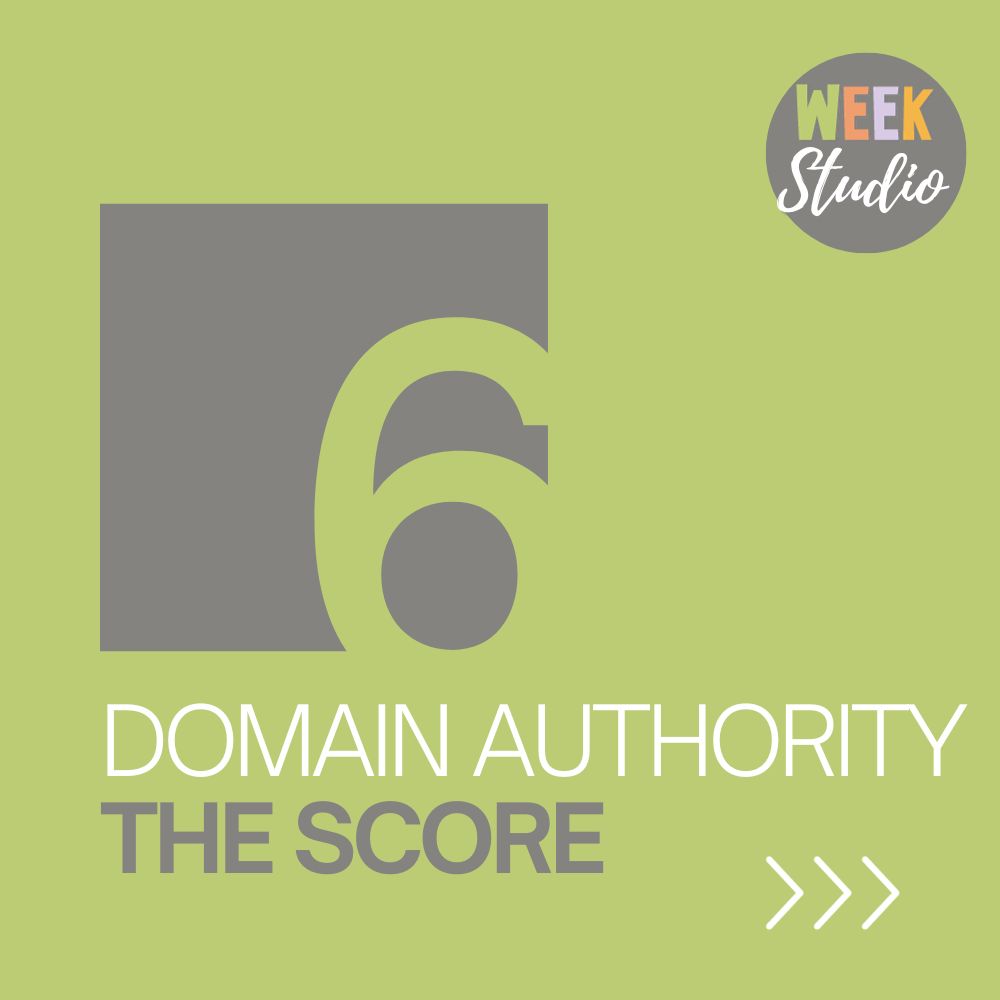
Once you obtain your Domain Authority score, it’s essential to interpret the results. As mentioned earlier, DA is measured on a scale from 1 to 100, with higher scores indicating a stronger online presence. Benchmark your score against competitors in your industry to gain a contextual understanding of where you stand. If your DA is lower than desired, don’t be disheartened. The subsequent sections of this guide will outline effective strategies to improve your website’s Domain Authority, thereby enhancing your chances of ranking higher on search engines.
Factors Affecting Domain Authority
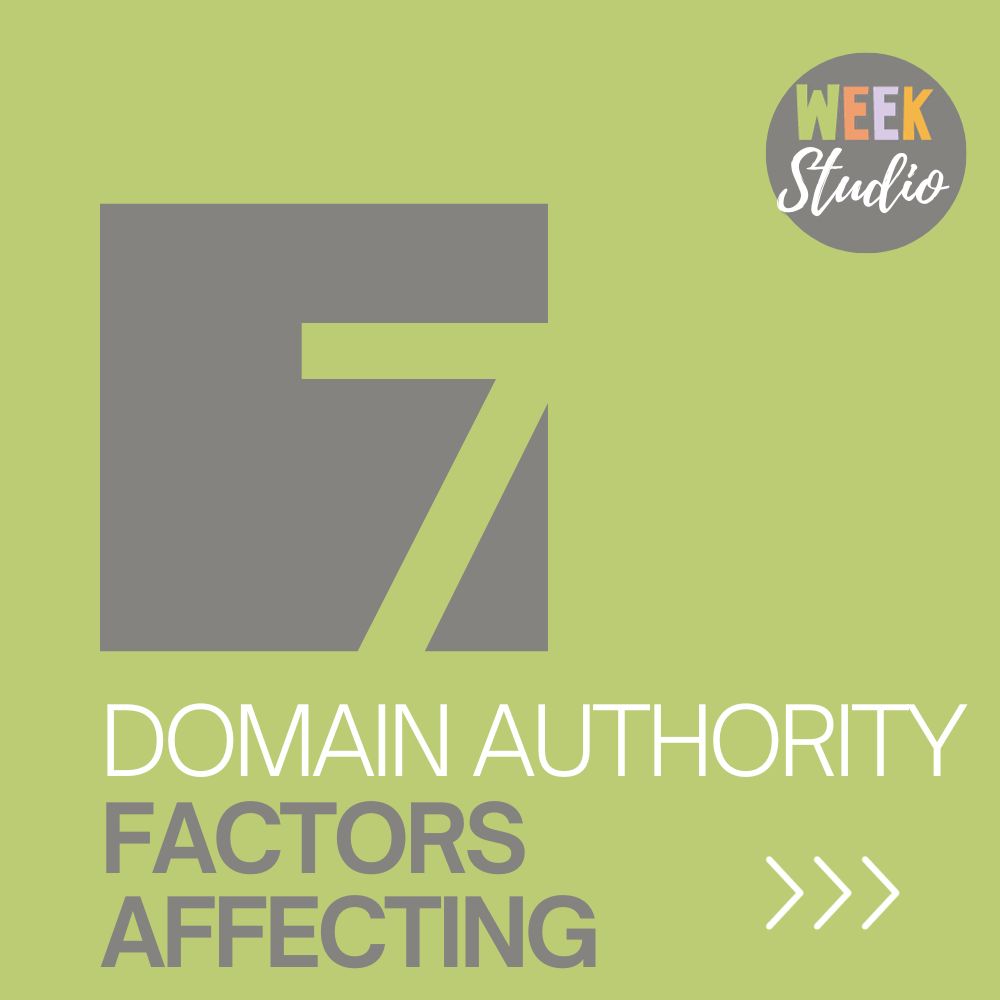
Understanding the factors that influence Domain Authority (DA) is instrumental in formulating effective strategies to improve your website’s standing. Moz’s algorithm takes various elements into account, each playing a crucial role in determining your DA score.
Quality and Quantity of Backlinks
- Link Diversity: A diverse array of high-quality backlinks from authoritative domains contributes significantly to your DA. Focus on acquiring links from a variety of sources to enhance the credibility of your website.
- Relevance of Backlinks: Links from websites within your niche or industry hold more weight. Ensure that your backlink profile includes links from sources that align with your content and target audience.
On-Page SEO Factors
- Content Quality: High-quality, relevant, and engaging content is paramount. Regularly update your content, ensuring it aligns with the interests of your target audience and incorporates relevant keywords.
- Keyword Optimization: Strategically integrate keywords into your content, titles, and meta descriptions. However, avoid keyword stuffing, as this can have a negative impact on both user experience and SEO.
Technical SEO Considerations

Site Structure: A well-organized site structure enhances user experience and facilitates search engine crawlers in navigating your website. Ensure a logical hierarchy with clear navigation.
Page Load Speed: Fast-loading pages contribute to a positive user experience. Optimize images, utilize browser caching, and leverage content delivery networks (CDNs) to improve your website’s speed.
Social Media Presence: While not a direct factor, a strong social media presence can contribute to your website’s authority. Share your content across social platforms to increase visibility and encourage engagement.
User Experience Metrics

Bounce Rate: A high bounce rate can signal poor user experience. Create compelling, relevant content to keep visitors engaged and encourage them to explore multiple pages on your site. Mobile Responsiveness: With an increasing number of users accessing the internet via mobile devices, a mobile-responsive website is crucial for both user experience and SEO. Understanding these factors provides a foundation for optimizing your website and, subsequently, improving your Domain Authority.
Improving Your Domain Authority
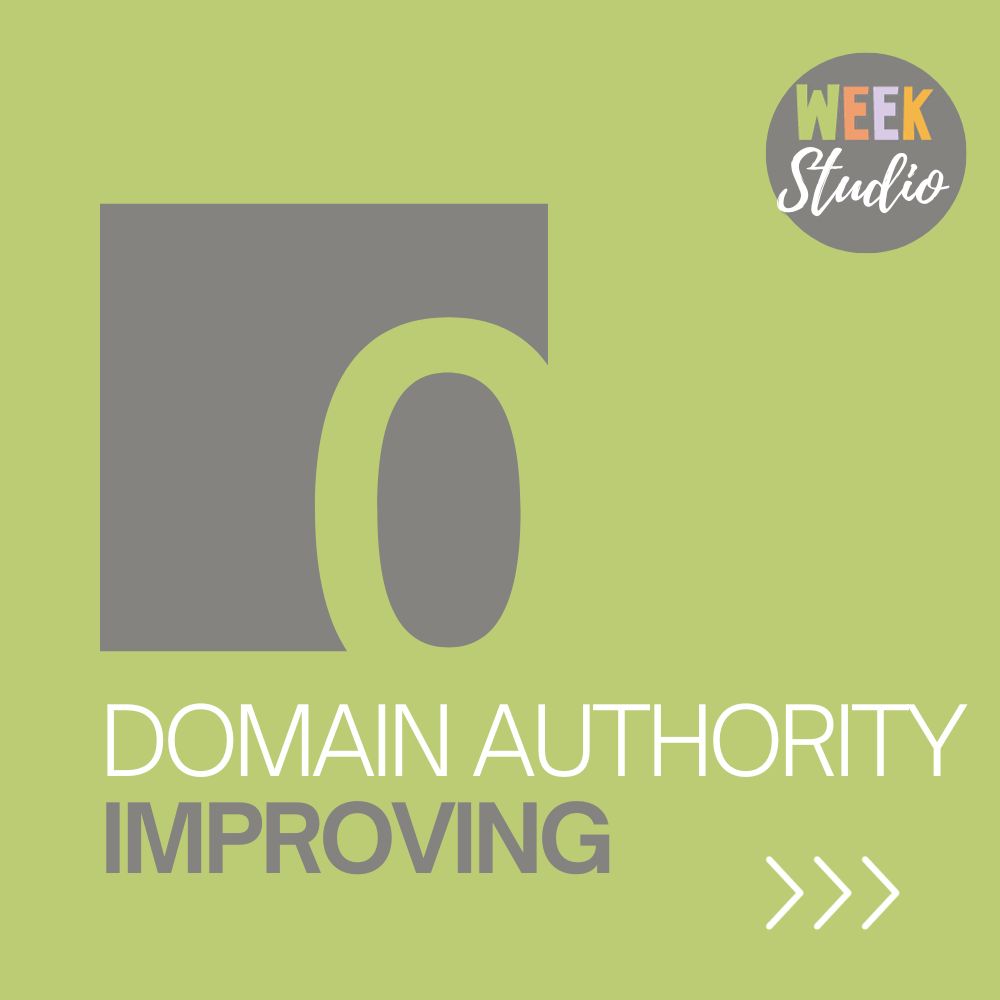
Now that we’ve unraveled the factors influencing Domain Authority (DA), let’s dive into actionable strategies to enhance your website’s standing and boost its SEO performance.
Building High-Quality Backlinks
Outreach and Guest Posting, Identify reputable websites in your niche and reach out for guest posting opportunities. Quality backlinks from relevant, authoritative sources can significantly impact your DA.
Internal Linking, Strategically link to relevant internal pages within your content. This not only enhances user navigation but also distributes link equity throughout your website.
Creating Valuable Content
Regular Content Updates Frequently update your content to reflect industry trends and keep information current. Search engines favor websites that consistently provide valuable and up-to-date content.
Diversify Content Types Incorporate a variety of content types, including blog posts, infographics, videos, and more. Diversifying your content can attract a broader audience and encourage more backlinks.
On-Page SEO Optimization
- Optimize Meta Tags: Craft compelling title tags and meta descriptions that not only include relevant keywords but also entice users to click through to your content.
- Image Optimization: Optimize images by using descriptive filenames and adding alt text. This not only improves SEO but also enhances accessibility.
Technical SEO Enhancements
- Conduct Regular SEO Audits: Regularly audit your website for technical SEO issues. Addressing issues such as broken links, crawl errors, and duplicate content can positively impact your DA.
- XML Sitemap Submission: Submit a clean and updated XML sitemap to search engines. This assists in efficient crawling and indexing of your website’s pages.
Consistent Social Media Engagement
- Shareable Content: Create content that is shareable on social media platforms. Increased social engagement can indirectly contribute to improved Domain Authority.
- Build a Social Community: Foster a community around your brand on social media. Engage with your audience, respond to comments, and encourage discussions.
Implementing these strategies requires consistency and a long-term perspective. Improving Domain Authority is a gradual process, and results may not be immediate. As we move forward, we will delve into real-world case studies, exploring success stories of websites that have effectively increased their DA. Join us in the next section for inspiration and insights from the field.
Common Mistakes That Affect Domain Authority
While it’s essential to focus on positive strategies to improve Domain Authority (DA), it’s equally crucial to be aware of common pitfalls that can have a negative impact. Avoiding these mistakes is key to maintaining and enhancing your website’s authority.
Overloading your content with keywords in an attempt to manipulate search rankings can harm user experience and lead to penalties from search engines.
Purchasing Low-Quality Backlinks
Buying backlinks from dubious sources may provide a temporary boost, but it can lead to long-term damage to your website’s credibility and result in lower DA.
Ignoring Website Performance
A slow-loading website frustrates users and can negatively impact your SEO. In an era where mobile usage is prevalent, a website that isn’t mobile-responsive not only provides a poor user experience but also faces penalties from search engines.
Publishing low-quality or thin content without substance can harm your website’s authority. Focus on providing valuable, in-depth content that satisfies user intent.
Copying content from other sources or having duplicate content within your own site can lead to penalties. Ensure each piece of content is unique and valuable. Prioritizing quantity over quality in backlink acquisition can harm your DA. Focus on building relationships with authoritative websites for sustainable growth.
Using the same anchor text repeatedly in backlinks can appear unnatural to search engines. Vary your anchor text to maintain a natural link profile. If users are leaving your site quickly, it signals poor engagement. Analyze and improve user experience to reduce bounce rates. A confusing or cluttered website structure can discourage users from exploring further. Ensure a clear and intuitive navigation system. Being mindful of these common mistakes and proactively addressing them can safeguard your website’s Domain Authority.
Case Studies: Success Stories
Let’s explore real-world examples of websites that have successfully increased their Domain Authority (DA) through strategic efforts. These case studies provide insights into the diverse approaches that can lead to improved online authority and search engine rankings.
Case Study 1: The Power of Strategic Content Creation
- Website: *TechInnovateHub.com*
- Initial DA: *28*
- Final DA: *45*
Strategy:
Tech Innovate Hub, a technology blog, focused on creating comprehensive and insightful content. They conducted thorough keyword research, identifying topics with high search volume and low competition. The team consistently published in-depth articles, guides, and tutorials, positioning themselves as an authoritative source in their niche. Additionally, they actively promoted their content on social media, encouraging sharing and engagement.
Results:
- – Increased backlinks from reputable tech forums and websites.
- – Improved organic traffic by 40% within six months.
- – Recognition as a go-to resource for tech enthusiasts.
Case Study 2: Building a Diverse Backlink Portfolio
- Website: *TravelEscape.com*
- Initial DA: *32*
- Final DA: *50*
Strategy:
Travel Escape, a travel and adventure website, focused on diversifying its backlink profile. The team engaged in outreach to travel bloggers, collaborated on guest posts, and actively participated in travel-related forums. They also implemented an internal linking strategy to distribute link equity across various pages of their site.
Results:
- – Acquired high-quality backlinks from reputable travel websites.
- – Expanded their audience through collaborations with influencers.
- – Improved DA contributed to increased visibility on search engines.
Case Study 3: Overcoming Technical SEO Challenges
- Website: *HealthWellnessHub.com*
- Initial DA: *25*
- Final DA: *40*
Strategy:
Health Wellness Hub, a health and lifestyle blog, identified and addressed technical SEO issues affecting their website. They conducted regular audits, fixed broken links, optimized images for faster loading times, and implemented a mobile-responsive design. Additionally, they optimized their meta tags and content for relevant keywords.
Results:
- – Significant improvement in page load speed and overall site performance.
- – Reduction in bounce rate by 20%.
- – Enhanced search engine visibility and improved DA over time.
These case studies highlight the diverse strategies that websites can employ to enhance their Domain Authority. Whether through content creation, building a diverse backlink portfolio, or addressing technical SEO challenges, each success story demonstrates the impact of strategic efforts on online authority. As we continue, we will tap into expert insights, providing you with tips from seasoned SEO professionals to further guide your journey toward a higher Domain Authority. Stay tuned for actionable advice and valuable perspectives.
Future Trends in Domain Authority
In the ever-evolving landscape of SEO, staying ahead of the curve is essential for maintaining and improving Domain Authority (DA). As we look to the future, several trends are likely to shape the way search engines evaluate and rank websites.
Evolving SEO Landscape
Search engines are placing an increased emphasis on user experience metrics. Factors like page load speed, mobile responsiveness, and overall site usability will continue to influence both DA and search rankings.
Google, in particular, is giving prominence to Core Web Vitals, a set of user-centric metrics that assess the loading performance, interactivity, and visual stability of a page. Websites that prioritize a seamless user experience are poised to benefit. As search engines become more sophisticated, the role of artificial intelligence (AI) and machine learning in evaluating website content and relevance is expected to grow. Websites that harness these technologies for improved content and user engagement may see an advantage.
E-A-T (Expertise, Authoritativeness, Trustworthiness)
Google’s E-A-T framework is likely to remain a crucial factor. Emphasizing the expertise, authoritativeness, and trustworthiness of your content and overall online presence will continue to be pivotal for SEO success.
- Voice Search Optimization: Consider natural language queries and conversational content in your optimization strategy.
- Video Content Dominance: Video content continues to gain prominence. Websites incorporating video content, whether through tutorials, vlogs, or other formats, may experience enhanced engagement and improved SEO performance.
Staying informed about emerging trends and algorithm updates is crucial for maintaining and improving your website’s DA. Regularly monitor industry news, participate in forums, and adapt your SEO strategy to align with the evolving landscape.
As we navigate the future trends in Domain Authority, it’s clear that a holistic approach to website optimization, user experience, and content creation will be key. The next section will feature insights from SEO professionals, providing expert tips for boosting your DA. Join us for actionable advice and valuable perspectives from those immersed in the world of search engine optimization.
Expert Tips for Boosting Domain Authority
Unlocking the full potential of your website’s Domain Authority (DA) requires a strategic and well-rounded approach. SEO professionals, with their hands-on experience, offer valuable insights and tips to help you navigate the path to a higher DA score.
Focus on Quality, Not Quantity (Samira Patel, SEO Consultant): Building a strong backlink profile is about quality, not quantity. Aim for links from reputable, authoritative sources within your industry. One high-quality backlink can have a more positive impact on your DA than several low-quality ones.
Consistent Content Updates (Alex Turner, Digital Marketing Specialist): Regularly updating your content signals to search engines that your website is actively maintained and relevant. Set a schedule for content audits and updates, ensuring that your information remains current and valuable to users.
Leverage Social Media (Emily Chen, Social Media Strategist): Don’t underestimate the power of social media in influencing your website’s authority. Share your content across platforms, engage with your audience, and encourage sharing. Social signals may not be a direct ranking factor, but they contribute to a holistic online presence.
Actionable Advice for Website Owners
Invest in Link Building Strategies (Mark Johnson, SEO Analyst Strategic link building remains a cornerstone of improving DA. Develop relationships within your industry, participate in guest posting, and leverage your existing network. A well-thought-out link-building strategy can yield significant results.
Understanding user intent is crucial for both user experience and SEO. Create content that aligns with what users are searching for and ensure a seamless, intuitive journey on your website. Search engines reward websites that satisfy user intent.
Stay Informed about Algorithm Changes (Sarah Reynolds, SEO Manager The SEO landscape evolves rapidly. Stay informed about algorithm updates and industry trends. Regularly review and adapt your strategies to align with the latest best practices. Being proactive in your approach will give you a competitive edge.
Implementation and Consistency
Set Realistic Goals (Daniel Carter, SEO Strategist Improving DA is a gradual process. Set realistic goals and milestones. Consistent, sustained effort is key. Don’t be discouraged by immediate results; focus on the long-term impact of your strategies.
Monitor Competitors (Samantha Lee, SEO Specialist Keep an eye on your competitors’ strategies. Analyze their backlink profiles, content approaches, and user engagement tactics. Understanding what works for others can provide valuable insights for refining your own strategy.
Elevate Your DA with Expert Guidance
Implementing these expert tips and insights into your SEO strategy can pave the way for improved Domain Authority. Remember, the journey to a higher DA is a marathon, not a sprint. Consistency, adaptability, and a focus on user-centric strategies will contribute to your website’s success in the ever-evolving digital landscape.
As we wrap up this guide, keep the momentum going. Regularly assess your website’s performance, stay informed about industry changes, and continue refining your approach based on expert advice. Best of luck on your journey to an elevated Domain Authority and increased online visibility!
Conclusion
In the dynamic realm of digital marketing, where online visibility is paramount, understanding and optimizing your website’s Domain Authority (DA) is a strategic imperative. This comprehensive guide has walked you through the intricacies of DA, from its definition and calculation to practical strategies for improvement.
Domain Authority is not just a number; it’s a reflection of your website’s authority, trustworthiness, and credibility in the eyes of search engines. From building a diverse backlink profile to creating valuable, user-centric content, each step contributes to the overall enhancement of your website’s online standing. Real-world case studies and insights from SEO professionals have provided inspiration and actionable advice.
As you embark on the journey to boost your Domain Authority, remember that it’s a continuous process. Consistency in implementing best practices, adapting to industry trends, and staying informed about algorithm changes will position your website for long-term success.
- – Quality over quantity: Prioritize high-quality backlinks from authoritative sources.
- – Content is king: Regularly update and diversify your content to meet user intent.
- – Social signals matter: Leverage social media to enhance your online presence.
- – Stay informed: Keep abreast of evolving SEO trends and algorithm changes.
- – User experience is key: Optimize for a seamless and engaging user experience.
Elevating your Domain Authority requires a holistic approach that combines technical SEO, content optimization, and a keen understanding of your audience. As you apply the insights gained from this guide, remember that your efforts are an investment in the long-term success and visibility of your website.
FAQs (Frequently Asked Questions)
- 1. What is Domain Authority, and why does it matter? Domain Authority (DA) is a metric that quantifies the strength and trustworthiness of a website on a scale from 1 to 100. It matters because search engines use it as an indicator of a site’s authority, impacting its rankings on search engine result pages (SERPs). A higher DA generally leads to improved visibility and credibility.
- 2. How often should I check my website’s Domain Authority? Checking your DA periodically, such as once a month, can provide valuable insights into the effectiveness of your SEO efforts. However, it’s crucial to understand that changes in DA may not be immediate, so consistency in monitoring and adjusting your strategies is key.
- 3. Can I improve my Domain Authority quickly? Improving Domain Authority is a gradual process and rarely happens overnight. Focus on sustainable strategies such as quality link building, content optimization, and user experience enhancements. Quick fixes, like purchasing low-quality backlinks, can lead to penalties and long-term damage.
- 4. Are social signals directly linked to Domain Authority? While social signals (engagement on social media platforms) are not direct ranking factors for DA, they contribute to your website’s overall online presence. Increased social engagement can lead to more visibility, sharing, and potentially more high-quality backlinks, indirectly impacting your DA.
- 5. How do I recover from a drop in Domain Authority? If you experience a drop in DA, conduct a thorough analysis of your website. Check for issues such as broken links, content quality, or changes in backlink profile. Address any technical SEO issues, focus on content improvement, and continue with ethical SEO practices to recover and improve your DA.
These FAQs provide insights into common queries about Domain Authority. If you have more specific questions or need tailored advice for your website, consider consulting with SEO professionals for personalized guidance.
Thank you for joining us on this journey through the intricacies of Domain Authority. May your website rise in the ranks, establishing itself as a trusted and authoritative presence in the vast landscape of the digital world. If you have any further questions or need additional guidance, feel free to explore more or seek assistance from SEO professionals. Happy optimizing!
